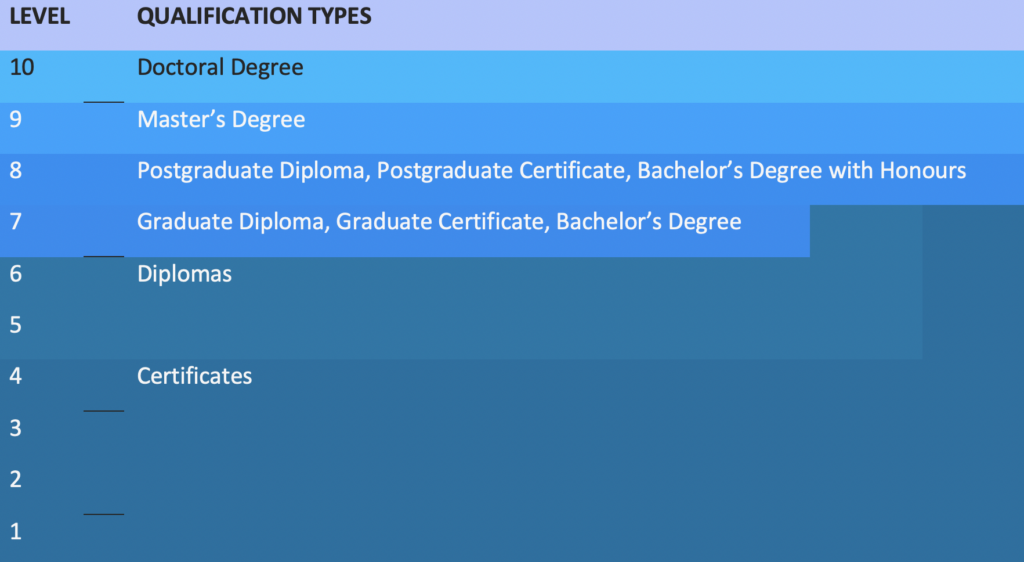The Fiji National Qualifications Framework (FQF) is a way to ensure that education reforms at all levels can be strategically linked. The framework establishes a platform for setting the direction of education and training in Fiji for the foreseeable future. It clarifies how competencies and qualifications relate to each other at different levels, and it establishes learning pathways that will enhance learner mobility and stimulate progression and career development. The FQF was introduced in 2011 and then reviewed in 2017.
The Fiji Qualifications Council (FQC) is the is the custodian of the FQF and is mandated to develop, implement, and maintain the criteria and processes for the accreditation and registration of qualifications on the FQF.
The FQF is a ten-level framework. Descriptions for levels are based on complexity, with level one being the simplest and level ten the most complex. Each level has designated qualification types: certificates, diplomas, or degrees. Each qualification type is defined by an agreed set of criteria which includes the qualification type title, the level at which the qualification type is listed, and the number of credits required at each level.
The FQF continues to evolve as a unified framework to suit the needs of education and training in the nation.
The FQF Levels

Qualification Types
Certificate
Level 1 includes the ability to demonstrate and/or work with basic knowledge in a subject/discipline.
Level 2 includes the ability to demonstrate and/or work with basic knowledge in a subject/discipline which is mainly factual.
Level 3 includes the ability to demonstrate and/or work with basic knowledge in a subject/discipline which is mainly factual but has some theoretical component.
Level 4 includes the ability to demonstrate and/or work with generalised knowledge of a subject/discipline.
Diploma
Level 5 includes the ability to demonstrate and/or work with a broad knowledge of the subject/discipline in general.
Level 6 includes the ability to demonstrate and/or work with a broad knowledge of the scope, defining features, and main areas of a subject/discipline.
Graduate Diploma, Graduate Certificate, Bachelor’s Degree
Level 7 includes the ability to demonstrate and/or work with a broad and integrated knowledge and understanding of the scope, main areas and boundaries of a subject/discipline.
Postgraduate Diploma, Postgraduate Certificate, Bachelor’s Degree with Honours
Level 8 includes the ability to demonstrate and/or work with knowledge that covers and integrates most of the principal areas, features, boundaries, terminology, and conventions of a subject/discipline.
Master’s Degree
Level 9 includes the ability to demonstrate and/or work with knowledge that covers and integrates most, if not all, of the main areas, of a subject/discipline, including their features, boundaries, terminology, and conventions.
Doctoral Degree
Level 10 includes the ability to demonstrate and/or work with a critical overview of a subject/discipline including critical understanding of the principal theories, principles, and concepts.

